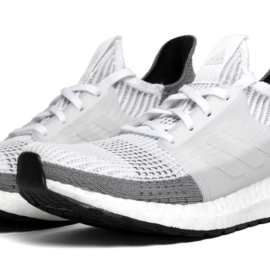Disclosure: I may earn affiliate revenue or commissions if you purchase products from links on my website. The prospect of compensation does not influence what I write about or how my posts are structured. The vast majority of articles on my website do not contain any affiliate links.
I’ve been following Track & Field quite closely this year and I must say that team USA is set for a really impressive showing. There have been freakish performances from collegiate athletes, freakish performances from pros, freakish performances from high schoolers. In the men’s field, this level of depth is unprecedented. There are so many different storylines and there have been moments this year where T&F announcers haven’t fully understood the significance of what they’ve witnessed.
I have so much respect for runners and though my commentary may get colorful or a bit too personal at times, I really just want to convey my level of excitement for the trials. We can only send three men for each event, so I’ve done all I can to build my case for each athlete. In some events, the US trials will be–legitimately–more competitive than the Olympic final. The men who make it through will be expected to medal.
View the 2021 Olympic Track Trials Entries here
100M
1. Trayvon Bromell
2. Fred Kerley
3. Noah Lyles
Bromell has dominated so far this season with a shocking return to form. He is likely the all-around best 100m man in the world this year with flawless technique and one perfect performance after another. In the post-Bolt era, 100m fandom is pretty weird. Regardless of who you want to win this race, the US needs a healthy Bromell at the Olympics to help secure 4x100m gold. Nobody is rooting against him.
Marvin Bracey, god bless him, is credited with a 9.85 from Miramar. My belief is that there was something wrong with the clock, track, or wind reading at this event. This performance makes no sense to me and so I doubt he’ll even make the final at the trials and a 4th-5th place Gatlin would be more likely to make the relay team than most.
Kerley flipped the script this season and nobody knows what to make of it. He went from a world-class 400m runner to a world-class 100m runner. 9.91 is not a joke. He scratched the 400m a few days ago. I’ve been watching Kerley run for years. Even when he was in the NCAA, it always struck me how painful his 400m training must be seeing as he’s huge (over 200lb) with striking muscle definition.
Kerley’s plan makes sense considering the NCAA results from this past weekend. There are no collegiate runners who have a shot at making the 100m team. In fact, the field is thin behind Bromell. If you make it to the Olympics and run 9.8[5-9] for 2nd or 3rd, you’re going to make more money in endorsements than if you fail to place or even make it to the Olympic final in the 400m and run the 3rd leg for the 4x400m to gold (which would be highly likely for Kerley). There are three NCAA studs with a real shot at making the 400m team and the trials are going to be a bloodbath.
The third spot is up for debate. How is Gatlin still running this fast? Lyles has been slightly disappointing this year, but he’d have to be my third pick. Micah Williams has the best start I’ve ever seen which can definitely destabilize and distract runners near him but it’s not clear how he can get into the 9.9s. I really like Cravon Gillespie or Gatlin for the relay team.
200m
1. Laird (LSU)
2. Lyles
3. Norman
The depth here is unbelievable. The United States has a shot at sweeping the Olympic podium in the 200m. You really just have Nigeria’s Oduduru and a restored Andre De Grasse in the conversation at this point. If the US sent a team of 5 to the Olympics, you’d end up with 5 men in the final barring catastrophe. We’ve got pros, high schoolers, NCAA studs, and a huge question mark next to a man named Joseph Fahnbulleh. It’s likely we’ll see fresh world leads come out of the heats or finals of this event. This final will be more competitive than the Olympic final, likely the most competitive 200m race of all time.
For the demigods down at LSU, it has been unclear how much of an advantage it is to basically train like a pro while in college while having to worry about little else. Case in point, Sha’Carri kicked ass in 2019 but then didn’t do so well at the trials. I don’t think it was a matter of burning out, but rather that LSU hasn’t optimized sending people to major meets over the summer. Makes sense, but LSU has some men now gunning for spots on the Olympic team, and everyone is wondering how they’ll hold up.
The main question is, were the weather-based concerns surrounding Laird valid? They wouldn’t stop talking about the weather in Eugene last weekend. People were unimpressed by his 200m second-place finish, but most don’t realize that this came shortly after an excellent 100m performance and 4x100m win. If Laird can run 19.8-lows as effortlessly as he did earlier this season, he upsets Lyles and takes Olympic gold. He walks through the trials and makes the team.
Noah Lyles hype cooled a bit this year. Laird and Knighton both showcased the ideal lightweight/high cadence 200m prototype. In comparison, Lyles can look a bit chunky and hasn’t moved as well since he dipped into the 19 mids. On the other side of the spectrum, you have “freight train” Fahnbulleh who may have the fastest top-end speed (9.47 rolling 100m) in the world right now. It is rumored he is considering competing for Liberia in these Olympics. (Note: a previous version of this article listed Fahnbulleh as being 23 years old–that has been corrected. I believe he was born in September 2001)
If I’m Fahnbulleh, I throw caution to the wind this summer and compete in the 100m/200m for Liberia. It’s not worth depriving another US phenom of a spot when you need 150m of runway before you’re even in the camera frame. Work on your start and stay healthy and you’re an Olympic medalist.
Michael Norman is really consistent. If he hasn’t scratched to focus on the 400m, I would never bet against him. Kerley obviously has the top-end speed and his season’s performance doesn’t reflect his potential. He can go 19.9 and that’s probably what it’ll take to grab the third spot.
The rest of the college studs are probably a bit over-raced at this point. Could I see Boling, Lance Lang, or Micaiah Harris grabbing a spot? Yeah. I realize that pro Kenny Bednarek deserves some respect here, but I’m not convinced that his performances weren’t a bit fluky. We’ll see what this dominant curve runner brings to the trials, perhaps he will be rewarded with a relay spot.
400m
1. Michael Norman
2. Randolph Ross (NC A&T)
3. Noah Williams (LSU)
Fred Kerley, arguably one of the most intimidating runners in modern Track and Field, is scared of this event. He ran the #8 performance of all time and never really seemed to attempt a body transformation to get closer to a Mike Norman weight class. He still has a ton of potential in the event, and I think a well-coached Kerley would be a world record threat. However, this field is so deep that I’m sure it contributed to Kerley focusing on the 100m/200m.
Everyone is talking about Randolph Ross. The last 50m of his NCAA championship race was a masterclass in mature 400m running. It wasn’t a fluke or a sudden shot of adrenaline, either. So incredibly steady and even. He has been running dominant 400m relay legs for months, really in a class of his own. What surprised people the most is that he ran 43.85 absolutely crushing the other 3 guys from the NCAA who were in contention. It’s not unusual for the top college guys to be among the best in the world, but you’ve got SIX (!) under 45 seconds.
First, let’s get this out of the way. Norman qualifies. I’ll even say he qualifies as the top performance. He ran a little slow this year, but he wasn’t even tired when he finished. Immediately upon finishing he knew he had run one segment of the track a little slower than he was supposed to. He’s a professional and you can expect a higher degree of precision and consistency.
There’s a 100% chance that Randolph Ross makes this final and is an easy selection for the relay squad. For him, teammate Trevor Stewart, LSU’s Noah Williams, Texas A&M’s Bryce Deadmon, and Georgia’s Godwin, it’s highly likely that they beat up on whatever pros show up to the preliminary rounds. Making the team is different. It’s going to come down to what they do between 150m and 250m and then between 350m and the finish. Godwin is an absolute maniac, going out in 20-high before tying up with 30m to go in every race. If Godwin adjusts his strategy and stops doing that, he can probably take another .2-.3 off his time this season. The rest don’t have as much obvious room for improvement, and it’ll be a dogfight to the end. I pick a fresh Noah Williams as the 3rd selection.
800m
1. Bryce Hoppel
2. Isaiah Jewett
3. Donovan Brazier
Track fans haven’t been particularly keen on Donovan Brazier’s performances this year. I think that’s ridiculous!!!! Donovan Brazier is incredibly fast. How many times has he run during the outdoor season? Everyone wanted him to run one second faster and hit a 1:44 low. Okay, I get it. Now, what about when he comes to the trials and runs 1:44 low to make the team and then blasts a PR at the Olympics for a medal?
All the monsters sitting on the top of the world rankings are scared of Brazier. They’re also scared of Bryce Hoppel, who has had an enviable early professional career in one of the most difficult men’s events. He’s had a solid progression but it’s extremely likely that it will take a furious kick to make the US team, and then a PR to win a medal in Tokyo. Thankfully, Hoppel is always good for a genius tactical race and a fast kick.
I watched Jewett’s run last weekend and the man is just a winner. Think about how many past US phenoms lost out on Olympic spots because they were scared to front run. This kid isn’t scared to front run. Why the hell not? Nothing to lose for him, and I expect him to run confidently and upset some pros who are still shaking the rust off.
1500m
1. Centro
2. Hocker (Oregon)
3. Brazier
The United States has surprising depth in this event and the roster features some cunning tacticians. Pros are in good form, Centro looks sharp, Donovan Brazier is dabbling, a high school senior named Hobbs Kessler ran a 3:34, and you’ve got 5 or 6 excellent NCAA guys. You also have incredible depth in other countries, such as Australia, to say nothing of the hoards of other “random” runners who grind out the Diamond League year after year.
Unlike some other events, the US does not “specialize” in the 1500m on the global scene. Only a few Americans are in the top 50, and mostly toward the back of the pack. There is no way to predict how these men will fare between the first round and the Olympic final. Mainly, we want to bet on whoever can close with the craziest last 400m.
The problem with relying on conventional 1500m championship knowledge is that, in a year loaded with talent, the top dogs might prefer to attempt 3:29-3:31 in the final. At that pace, some Americans might try to hang, but most will find themselves outclassed. For the record, a 3:29.7 1500m is a 3:46.5 full mile. So the Americans might hang back especially over the first 400m hoping for a tactical race just to find themselves 2.5 seconds away from Timothy Cheriyuot by 800m.
I’m going to go with an unconventional pick here because this final is going to be brutal. Some big names are going to get sent home before the US finals. I think Centro, the defending Olympic champion, is the right guy for the job. There will be a target on his back but there’s a pretty good chance someone intentionally trips him at the Olympics and he’ll coast into the Olympic final. Hocker can close faster than Centro but we’re not sure if he has the wheels to keep up with professionals. For third, why not Brazier? He can probably outkick anybody and has more extremely fast 800m experience than nearly anyone he’ll face.
5000m
1. Grant Fischer
2. Cooper Teare
3. Eric Jenkins
Grant Fischer commits to the double and runs a dominant 5k. Cooper Teare runs a PR and pulls off a magnificent second-place finish. I like Eric Jenkins. I think he beats out a tired Klecker and a tired Kincaid for the 3rd spot.
This is an event where I’d have more faith in the American contingent than the 10k. As Justyn Knight (Canadian) recently proved, sometimes all it takes is being in the right race at the right time. If the 12:50 range earns a medal, meh. If the 13:05 range wins it, an American can take gold. Anything slower than that will more strongly favor Americans who historically have a faster “last gear.”
10000m
1. Woody Kincaid
2. Grant Fischer
3. Joe Klecker
This final will be the first that any of the men’s distance runners compete in. Everyone will be fresh. This is Grant Fischer’s year, but I think he’ll fade knowing he has a spot and wanting to attempt to pull off the 5k/10k double. Klecker will PR to make the team while Ben True and others will go home devastated.
What happens at the Olympics? East Africans will dominate. The Kenyan trials are occurring this week, so we’ll probably see 4-5 ridiculous sub 27 performances as we saw with the Ethiopians last week. We need three Americans with sub-27 potential who have the heart to hang on to the ridiculous pace and try to kick for bronze. It can happen.
110m Hurdles
1. Grant Holloway
2. No strong opinion
3. No opinion whatsoever
Watching this final at NCAAs, the race was a complete mess. The hurdles were getting clipped and knocked over very aggressively. Grant Holloway is an easy pick here and he’ll likely bring home an Olympic medal. I also like McConico.
400m Hurdles
1. Rai Benjamin
2. Squirrel (LSU)
3. Trevor Bassitt
Does any man from the United States have a shot at beating a full-strength Karsten Warholm? Not really. This will be a contest for silver and bronze.
Rai Benjamin is very consistent and he’s the only man in the world who deserves to be in the same conversation as Warholm. In second place we have SQUIRREL, BABY!!! Sean Burrell is a ridiculous, almost comical performer under pressure. A 20.X 200m runner since he was like 16 years old, LSU moved him to the 400m hurdles this season presumably since they’re too deep in the flat 400m. He had run shorter hurdle races in high school, but his progression this year suggests he is a generational talent. He improved with each and every race before taking the NCAA title with a world #4 performance.
The crazy thing about this is that if Squirrel can somehow continue on his trajectory of improvement, he actually will take down Warholm and win Olympic gold. If he makes the Olympic final, oh my god. The #3 spot is a toss-up here, but I’ve watched Bassitt race and liked his whole attitude.





Pingback: US Olympic Track Trials Recap | Tim O'Hearn()
Pingback: My Picks for Track & Field at the 2020 Toyko Olympics | Tim O'Hearn()